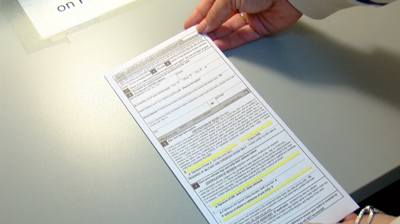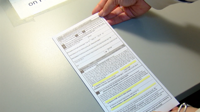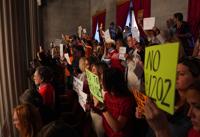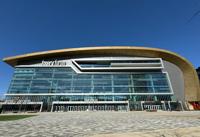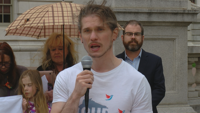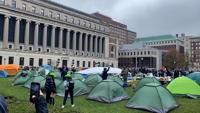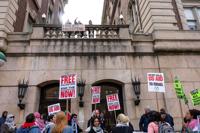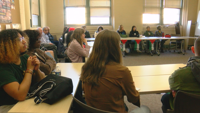
Wisconsin voters to consider two questions surrounding the use of private funds and the responsibility of election officials this April
MADISON (WKOW) -- Wisconsin voters will be asked to respond to two statewide referendum questions on the state's presidential primary ballot on April 2.
One question addresses the use of private funds to conduct elections and a second question defines whether election officials should be solely responsible for all administrative tasks that play a role in the state's elections. You can access those ballot measures here.
"QUESTION 1: Use of private funds in election administration. Shall section 7 (1) of article III of the constitution be created to provide that private donations and grants may not be applied for, accepted, expended, or used in connection with the conduct of any primary, election, or referendum?"
"QUESTION 2: Election officials. Shall section 7 (2) of article III of the constitution be created to provide that only election officials designated by law may perform tasks in the conduct of primaries, elections, and referendums?"
Republican lawmakers introduced the two referendum questions following the 2020 election when the state received private grants and guidance from consultants on administering elections during the COVID-19 pandemic.
"It's important for the government itself, to be organizing these things," said Sen. Eric Wimberger (R-Green Bay), the bill's lead author. "It gives an uncertainty in whether the election was done fairly because maybe they're running a bus or doing a "Get Out to Vote" campaign in particular neighborhoods in order to achieve these funds."
The GOP-criticized funds the state received came from the Center for Tech and Civic Life, an organization that Facebook founder Mark Zuckerberg has mainly funded. Much of the money went to Wisconsin's five largest cities: Milwaukee, Madison, Green Bay, Kenosha and Racine.
More than 200 municipalities applied for and received a portion of the $10.6 million, including some of the smaller, Republican–controlled districts like Waukesha County. However, Republicans have argued that the grants disproportionately went to more liberal-leaning cities.
"They say the money was available to anyone who wanted it, and we can take them at their word, but the reality is that there was an unbalanced, unfair distribution that did occur," Wisconsin Institute for Law and Liberty Research Director Will Flanders said.
Wimberger said in an interview with 27 News that the constitutional amendments were originally proposals introduced in the state legislature and eventually vetoed by Democratic Governor Tony Evers. Wimberger said the questions were in response to what he claimed was the interference by outside actors into basic government organizations, stating municipalities could request public funds directly from the state.
"When it comes to whether or not the localities have enough money, they should, and it's a constitutional right to vote," Wimberger said. "If they don't, the recourse that they're supposed to take is to go and ask the state for supplemental funding."
Democratic lawmakers and advocates have said the first question could reduce access to critical funding that helps make administering the state's elections more efficient.
"Much of that grant money went toward the purchase of sanitizer, plexiglass shields, so voters and poll workers didn't have to be breathing on one another," said Executive Director for The League of Women Voters of Wisconsin Debra Cronmiller. "Elections are expensive, and these dollars are a good way to help a municipality offset the cost associated with running our elections."
Cronmiller said voters should ensure they are informed on the impact of both referendum questions as the amendments are set to permanently change the Wisconsin constitution, if passed.
"In Wisconsin, our Constitution has been amended 148 times since it was created about 150 years ago, and most of those amendments were to overturn previous amendments," Cronmiller said. "It's really quite important that we get it right."
Wisconsin residents interested in learning more about what is on the ballot this spring and what races are taking place in their district can visit MyVote Wisconsin to preview their ballot and local races.
The League of Women Women Voters of Wisconsin also launched the VOTE411.org voter guide for all districts to find more information on statewide and local referendum questions and the upcoming municipal and judicial races.

